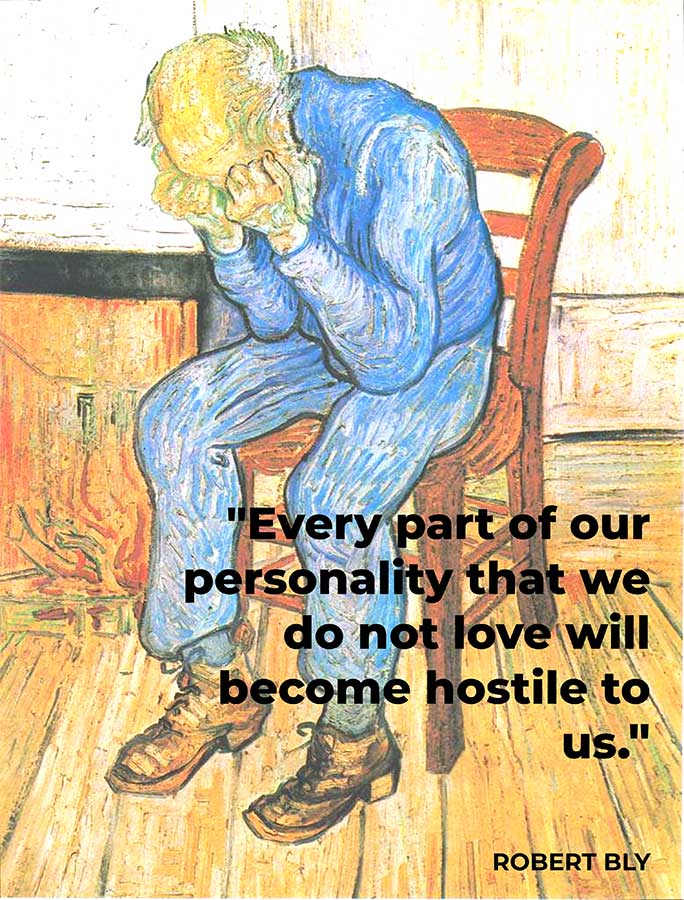Anxiety & Depression
Online or in-person appointments available
Anxiety & Depression Counselling
“Depression: A psychological state characterized by a lack of energy. Energy not available to consciousness does not simply vanish. It regresses and stirs up unconscious contents (fantasies, memories, wishes, etc) that for the sake of psychological health need to be brought to light and examined.”
~ Daryl Sharp, Jungian Lexicon: A Primer of Terms & Concepts
Windsor Depression Treatment
Depression is not necessarily best understood as a medical or physiological disease, despite that for some people it can be chronic and overwhelming. A lot depends on the age of onset and the wider context of the person’s life. For younger people who are still necessarily dependent on the support of their environment, depression can occur when the energy essential to becoming an independent individual is thwarted and cannot find appropriate expression. It can be thought of as ‘swallowed anger’ or natural assertiveness, turned inward and is directed as a kind of aggression towards the Self.
Is There Hope for Depression?
Yes. The feeling of hopelessness is a sign that you may be struggling with depression. For some people, who have accomplished many of their life goals that were important in the first half of their life, the onset of depression can foreshadow a renewal of the Self. Energy that was once available to the conscious parts of the personality is drawn off to meet the requirements of change. Like the chrysalis stage in the metamorphosis of a butterfly, energy is reserved and directed towards the transformation. Here psychotherapy is valuable in that it helps the individuating person to participate in the opus consciously and imaginatively. ‘Psyche,’ the root word in psychology is the Greek word for soul. It was also the ancient Greek word for butterfly.
Signs of Depression
- Persistent sadness
- Self-loathing and/or thoughts of self-harm
- Loss of interest in all activities
- Irritability & desire to isolate
- Loss of energy
- Abnormal sleep patterns
- Weight gain/loss
- Risky or uncharacteristic behaviours
- Thoughts of suicide


Windsor Anxiety Treatment
Anxiety within the developmental contexts of age and stage, can be understood as a shrinking back from the necessary demands life puts on an individual. Psychotherapy can be helpful at either the individual or family-system level to investigate and help the individual or the family-system find the appropriate form of adaptation to the requirements of progression.
Do I have an Anxiety Disorder?
With a vast amount of information at our fingertips, the average adult is much more widely informed about mental health and wellness than at any point in the past. Nevertheless, it can be confusing, and information can be conflicting. At Windsor Counselling and Psychotherapy Services, your subjective experiences are the starting point, and a medical diagnosis is not necessary. If you or your loved ones have been experiencing any of the following, then it may be time to reach out to Windsor Counselling & Psychotherapy Services for help:
Signs of an Anxiety or Panic Disorder
- Persistent feeling of being on-edge or restless
- Fatigue
- Difficulty maintaining concentration
- Irritability
- Frequent headaches, muscle aches, stomachaches, or unexplained pains
- Uncontrollable feelings of worry
- Difficulty sleeping
- Panic attacks
What is Panic Disorder?
This is when you experience frequent and unexpected panic attacks. It may feel like a sudden wave of intense fear or a sense of losing control – even when there is no clear or present danger.
Panic disorders are frequently classified into six types, including phobias and social anxiety:
- Panic Disorder (Characterized by acute Anxiety or Panic Attacks)
- Generalized Anxiety Disorder (GAD)
- Obsessive-Compulsive Disorder (OCD)
- Post-Traumatic Stress Disorder (PTSD)
- Phobias
- Social Anxiety
During a panic attack, you may experience:
- Feelings of impending doom
- Feelings of being out of control,
- Disassociation: A sense of disconnection from reality – when this is persistent you may be experiencing something called Depersonalization. This can be part of an anxiety-related disorder that can be treated with psychotherapy.
For others the symptoms may be physical:
- Shakes and sweats
- Nausea
- Rapid, irregular heartbeats.
- Out of breath or dizzy
This often prompts a person to get themselves checked by a doctor. When no physical cause is discernable, they may find talking to a therapist helps.
